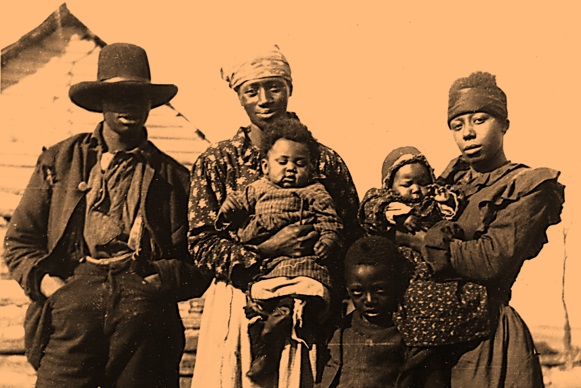
It pains me to say so, but we really need to wrap this one up.
I’ve been wandering through “The Blacks in Oklahoma,” from The New York Times, April 9, 1891. If you haven’t read Part I and Part II, well… I mean, you did notice this is called ‘Part III’, right?
The unnamed author has already set us up once, responding to rumors that black settlers were becoming a drain on their communities and – by implication – the hard working white citizens in the territory, by informing us that the opposite seemed to be the case everywhere HE went.
Having covered a touch of the past and some key features of the present, he’s about to conclude – logically enough – by considering the future. He starts by reminding us that white people are at best delusional, and at worst notorious fabricators – especially the politicians.
The Hon. David Harvey, delegate to Congress from Oklahoma, said to THE TIMES correspondent that the blacks were decreasing in Oklahoma and that they could not find an abiding place there. The observation made during the trip just finished will not verify his statements.
What a gentle way to phrase “liar, liar, pants on fire!”
In his own city – Oklahoma City – according to his statement, there were not over 100 negroes of all ages and kinds. A careful personal count revealed the existence of 157 families, averaging 4 to each family. He asserted that there were not more than four dozen negroes in Guthrie, while, in fact, there are at least 300 in the city.
Last time this reporter laid on the statistics, he was setting us up for a mid-article twist. We should be ready for wherever he’s going this time as well.
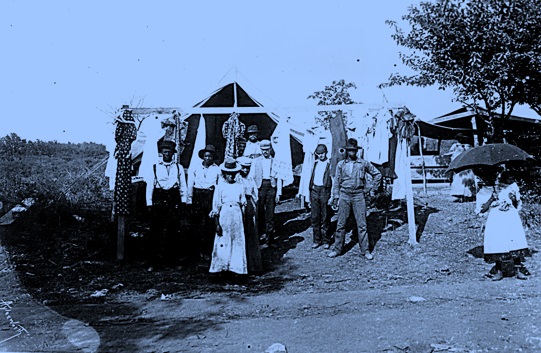
Mr. Harvey was especially positive that the black-jack country could not contain over 1,000 negroes, when the returns of the last election show that Mr. Harvey received at least 1,700 negro votes.
Again with the diplomatic approach.
I think this could just as easily have said, “He knows darn well that he’s full of $#%* because whatever else he does or doesn’t care about, he KNOWS his own electoral results!”
He condemns all allusion to the black strength in that Territory, believing that the importation of blacks only adds to the distress possibly existing there, and yet the blacks are the only ones of a mixed population self-sustaining in a Territory where the majority of the inhabitants so far have been living off of each other, gradually wasting their capital, and will do so until agriculture begins to be productive of results.
Thus revisiting the impact point made in the first half of the piece – despite claims to the contrary, the black settlers were the only ones NOT adding to “the distress.” Note how subtly the language employed here suggests a certain defensiveness – maybe even hostility – on the part of Mr. Harvey.
The cities are owned principally by speculators. They would be creditable to an older country, showing the indomitable energy and faith of their founders, as well as exemplifying their hopes in the future of Oklahoma.
Is there an implied ‘but…’ here?
In the meantime, almost every train brings in negroes from the South, who remain. Agents from Georgia and Arkansas have in vain sought to induce some of these blacks to return as laborers. They will not go. They send glowing accounts back to their friends of the new land, and the stream of immigrants constantly increases.
However difficult conditions in the new Territory, they apparently had nothing on the Old South. If you teach ‘push-pull’ factors in your classroom, here’s a prime example – plenty to drive a group of people OUT of one place; plenty to draw them IN to another.
So far there has been but little trouble; what the future may bring nobody even pretends to guess. In fact, nobody will not think of it, except the blacks themselves. The latter fondly cherish the idea that they may possibly found here a State in which they will predominate and have the controlling power.
Oh the possibilities! Surely most resisted the temptation to give hope too much leeway. History would insist that under no circumstances would that EVER be allowed to happen (see Part II).
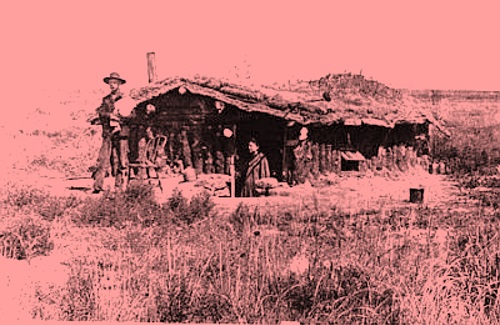
Here comes the wrap-up. Stay with me now – this is a good one.
See, one of the things I love about humor and tone in a well-written piece is how much impact it gives the underlying message – the ‘serious’ parts – when they arrive. I have little use for droopy drama, but when the Guardians of the Galaxy resolve to sacrifice themselves to try to do one right thing, or Bill Murray realizes the “true” meaning of Christmas… snot’n’sobs. Every time.
If I were an English teacher, we’d have a fancy word for this use of tone and structure, and examples involving obtuse essays by dead Englishmen. But HISTORY teacher = movies movies movies.
The war of races in Oklahoma is sure to come, but it will not be fought with guns and knives. The weapons will be the plow and the hoe, which will be wielded by each race upon its own lands. It remains to be seen whether the hot sun of Oklahoma will favor the black cuticle of the cotton and tobacco grower or the white skin of the corn and wheat raiser.
*pause*
That’s it. That’s the conclusion.
I’ve read this numerous times, and I’m convinced the author fully expects the black settlers in Oklahoma to prevail – or to at least hold their own. Maybe he’s more concerned with dramatic effect than substance, but I don’t think it’s just that. I think he’s being idealistic.
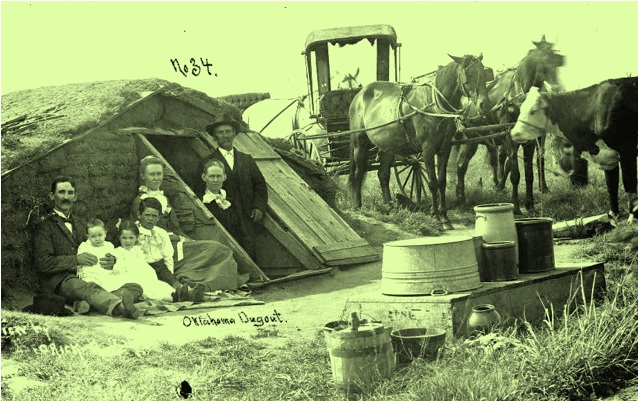
Like most of us, his own experiences and assumptions about how the world works color his optimism. Inherent in that closing paragraph is the conviction that hard work, grit, and the human spirit determine winners and losers in the end. Helen Churchill Condee had the same assumptions when she wrote primarily of white homesteading.
That’s the American Dream – or it was, for a few centuries. It’s a bedrock of conservative social and political thinking – you get out of life what you put into it. Work hard, stay in school, live the dream – everyone may not start with the same advantages, but the overall system works the same for everyone.
The Black experience – in Oklahoma or anywhere else – didn’t usually hold that to be true. Much like the American Indians they were replacing, the terms of the deal kept changing based on what best served white predominance. They changed for individual farmers who found some success, and they changed for communities who prospered just a little too much.
The most glaring example exploded a short thirty years later in Greenwood, as white citizens of Tulsa burned down Black Tulsa, killed hundreds of innocents, and took their stuff home as presents for their wives and kids. The war of races become violently overt, fought with guns and knives.
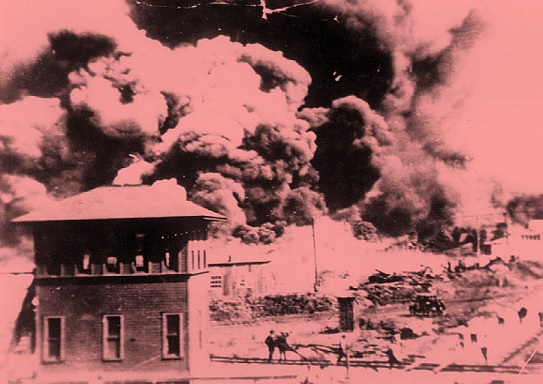
But even when the mobs aren’t in the street, is it possible that the underlying system has always been there? How much would be different if it weren’t shaping policies and attitudes today?
I don’t want to sound negative, but a doctor unwilling to discuss a possible diagnosis with his patient just because he doesn’t want to be a downer isn’t a very honest doctor. Maybe we don’t like to think about such things because we’re enjoying our little plot of land, knowing we’ve worked hard, taken a few chances, and caught a few breaks along the way. Maybe it’s easier to condemn those who threaten our paradigm than to question our comfort.
Or perhaps at some point human nature dramatically changed, the system began to work equitably, and everyone should just be glad all the descendents of those who first claimed those best lands from the less-worthy (by nature of their color or culture) just happen to be the most honest, hard-working folks today.
You know, so no one has to adjust their social, political, or economic standing too much. Because that would be SO un-American.
Just make sure you don’t think it too clearly or ever say to yourself out loud what your forebears carried as a matter of fundamental faith – that you are where you are because that’s exactly how things were set up to be. Because the universe has decreed it your “birthright.”
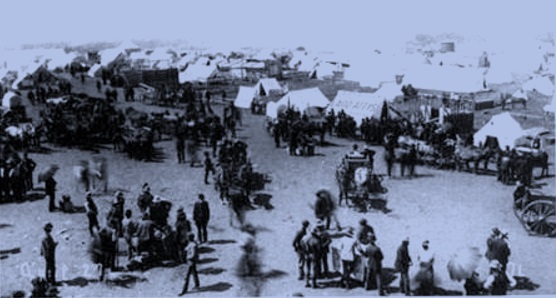
RELATED POST: The Blacks in Oklahoma, Part I
RELATED POST: The Blacks in Oklahoma, Part II
RELATED POSTS: A Chance in Oklahoma, Parts I – II
RELATED POSTS: Boomers & Sooners, Parts I – V

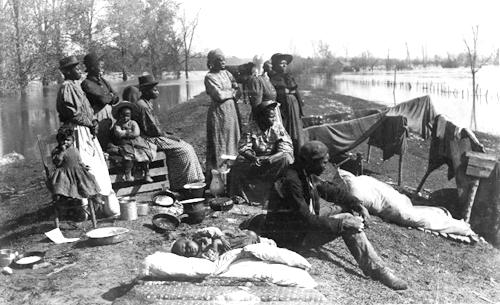
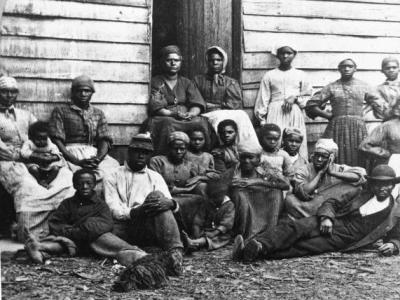
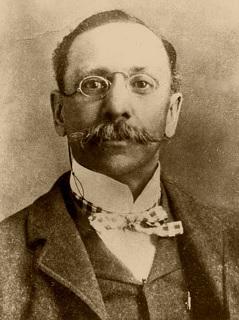
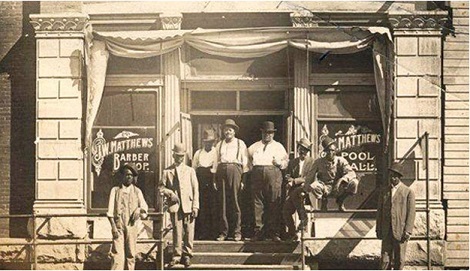
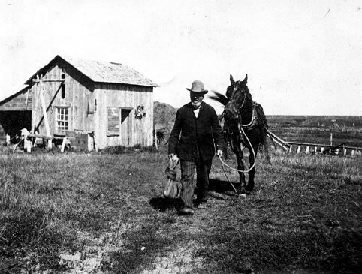
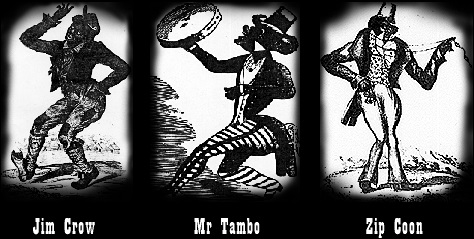
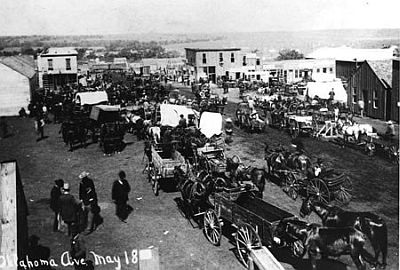
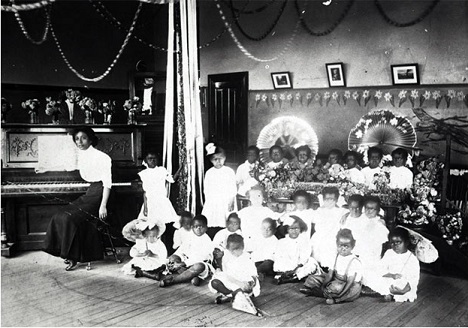
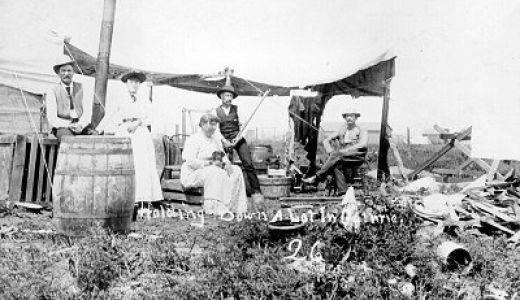
 I confess I’ve always had a disproportionate revulsion and hostility towards people who cut in line, take up multiple parking places, or otherwise demonstrate an utter lack of interest in the possibility there are other people in the world but themselves.
I confess I’ve always had a disproportionate revulsion and hostility towards people who cut in line, take up multiple parking places, or otherwise demonstrate an utter lack of interest in the possibility there are other people in the world but themselves.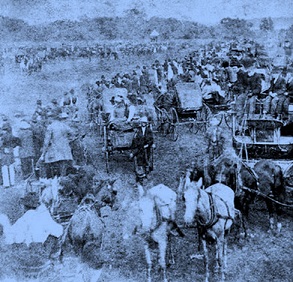 Perhaps we can excuse, if not entirely justify, the actions of desperate individuals willing to take big chances – to hide in the bushes or sneak past armed defenders. But what we so often gloss over in Oklahoma History is how many Sooners didn’t have to sneak in at all. They were there with permission. By orders, actually.
Perhaps we can excuse, if not entirely justify, the actions of desperate individuals willing to take big chances – to hide in the bushes or sneak past armed defenders. But what we so often gloss over in Oklahoma History is how many Sooners didn’t have to sneak in at all. They were there with permission. By orders, actually.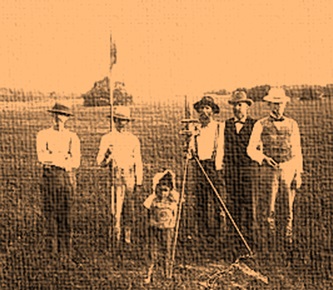 Soldiers, land-surveyors, law enforcement – anyone with the right connections to get themselves into the territory ahead of time and scope out the best land. Often they’d announce their resignations minutes before noon, presumably in anticipation of future accusations they’d violated the terms of their employment.
Soldiers, land-surveyors, law enforcement – anyone with the right connections to get themselves into the territory ahead of time and scope out the best land. Often they’d announce their resignations minutes before noon, presumably in anticipation of future accusations they’d violated the terms of their employment.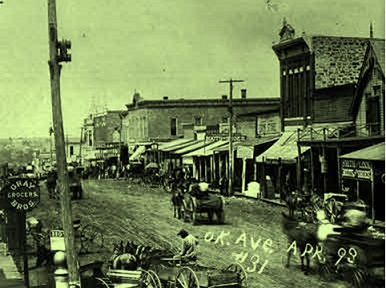 Sooners were far more likely to farm successfully, having started with better farms. They were generally more prosperous as merchants or other businessmen, having established ideal locations and opened for business while others were still gathering basic supplies. They’d produce the healthiest children who’d receive the best educations and have the best opportunities due to family connections and social savvy.
Sooners were far more likely to farm successfully, having started with better farms. They were generally more prosperous as merchants or other businessmen, having established ideal locations and opened for business while others were still gathering basic supplies. They’d produce the healthiest children who’d receive the best educations and have the best opportunities due to family connections and social savvy.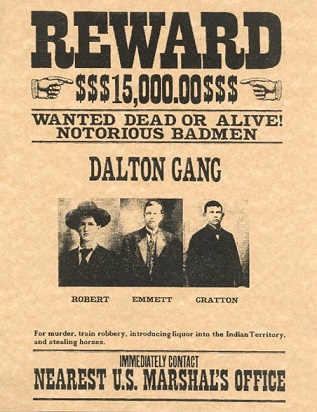 We may express periodic ambivalence towards Pretty Boy Floyd or the Daltons, but they at least robbed and killed those representing the system – the powerful – ‘the man’. Sooners robbed the commonest of common men, and did so just as he was risking everything to improve his condition and claim his small slice of the American Dream.
We may express periodic ambivalence towards Pretty Boy Floyd or the Daltons, but they at least robbed and killed those representing the system – the powerful – ‘the man’. Sooners robbed the commonest of common men, and did so just as he was risking everything to improve his condition and claim his small slice of the American Dream. Not all Sooners were such loveable characters, however. From the New York Times, April 25th, 1889:
Not all Sooners were such loveable characters, however. From the New York Times, April 25th, 1889: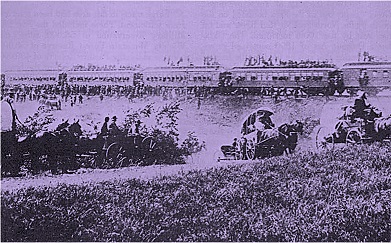 It was later announced that these lands would be opened up through a ‘Land Run’ – an approach which certainly reduced paperwork and eliminated the traditional 5-year waiting period before taking title to a section of this last remnant of American frontier, now being referred to more and more often as “Oklahoma.” It was a weird system even for the times – times far more interesting than usually credited.
It was later announced that these lands would be opened up through a ‘Land Run’ – an approach which certainly reduced paperwork and eliminated the traditional 5-year waiting period before taking title to a section of this last remnant of American frontier, now being referred to more and more often as “Oklahoma.” It was a weird system even for the times – times far more interesting than usually credited.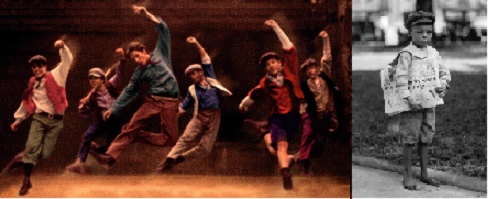 People were reading Kate Chopin, H.G. Wells, Bram Stoker, and Oscar Wilde, while Arthur Conan Doyle introduced a new character named “Sherlock Holmes.” Those kids from Newsies, led by a young Bruce Wayne, were doing that thing they wanted the world to know, although it’s unclear whether they used the same choreography as in the movie. L. Frank Baum was writing The Wonderful Wizard of Oz so that schoolchildren a century later could discuss bimetallism without losing consciousness, and those guys who kinda invented flying machines just prior to the Wright Brothers were crashing them in various interesting ways as part of their efforts to claim the skies.
People were reading Kate Chopin, H.G. Wells, Bram Stoker, and Oscar Wilde, while Arthur Conan Doyle introduced a new character named “Sherlock Holmes.” Those kids from Newsies, led by a young Bruce Wayne, were doing that thing they wanted the world to know, although it’s unclear whether they used the same choreography as in the movie. L. Frank Baum was writing The Wonderful Wizard of Oz so that schoolchildren a century later could discuss bimetallism without losing consciousness, and those guys who kinda invented flying machines just prior to the Wright Brothers were crashing them in various interesting ways as part of their efforts to claim the skies.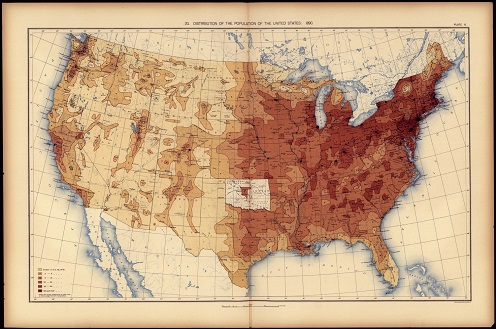 The census was a year away, but the sense that the nation was ‘filling up’ and land was ‘running out’ was hardly news to Boomers and others looking for those last few opportunities in the west. The future state of Oklahoma, once so disparaged that the Natives were placed there by force so white guys could have the GOOD land, was looking better and better as other options fell away. Necessity, it seems, was the mother of invasion.
The census was a year away, but the sense that the nation was ‘filling up’ and land was ‘running out’ was hardly news to Boomers and others looking for those last few opportunities in the west. The future state of Oklahoma, once so disparaged that the Natives were placed there by force so white guys could have the GOOD land, was looking better and better as other options fell away. Necessity, it seems, was the mother of invasion.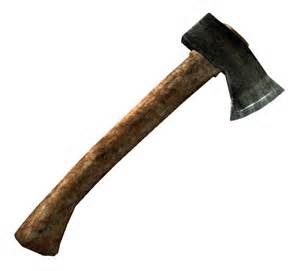 “Rather got ahead of ye, didn’t I, boys?” he asked, when they came up.
“Rather got ahead of ye, didn’t I, boys?” he asked, when they came up. Still, even this we might sweep aside as typical of the times. We must not judge the past by the standards of our far-more-convenient present. Perhaps hatchet lad, and Grant – who went on to shoot the bastard – may be excused for their Lord of the Flies behavior.
Still, even this we might sweep aside as typical of the times. We must not judge the past by the standards of our far-more-convenient present. Perhaps hatchet lad, and Grant – who went on to shoot the bastard – may be excused for their Lord of the Flies behavior.